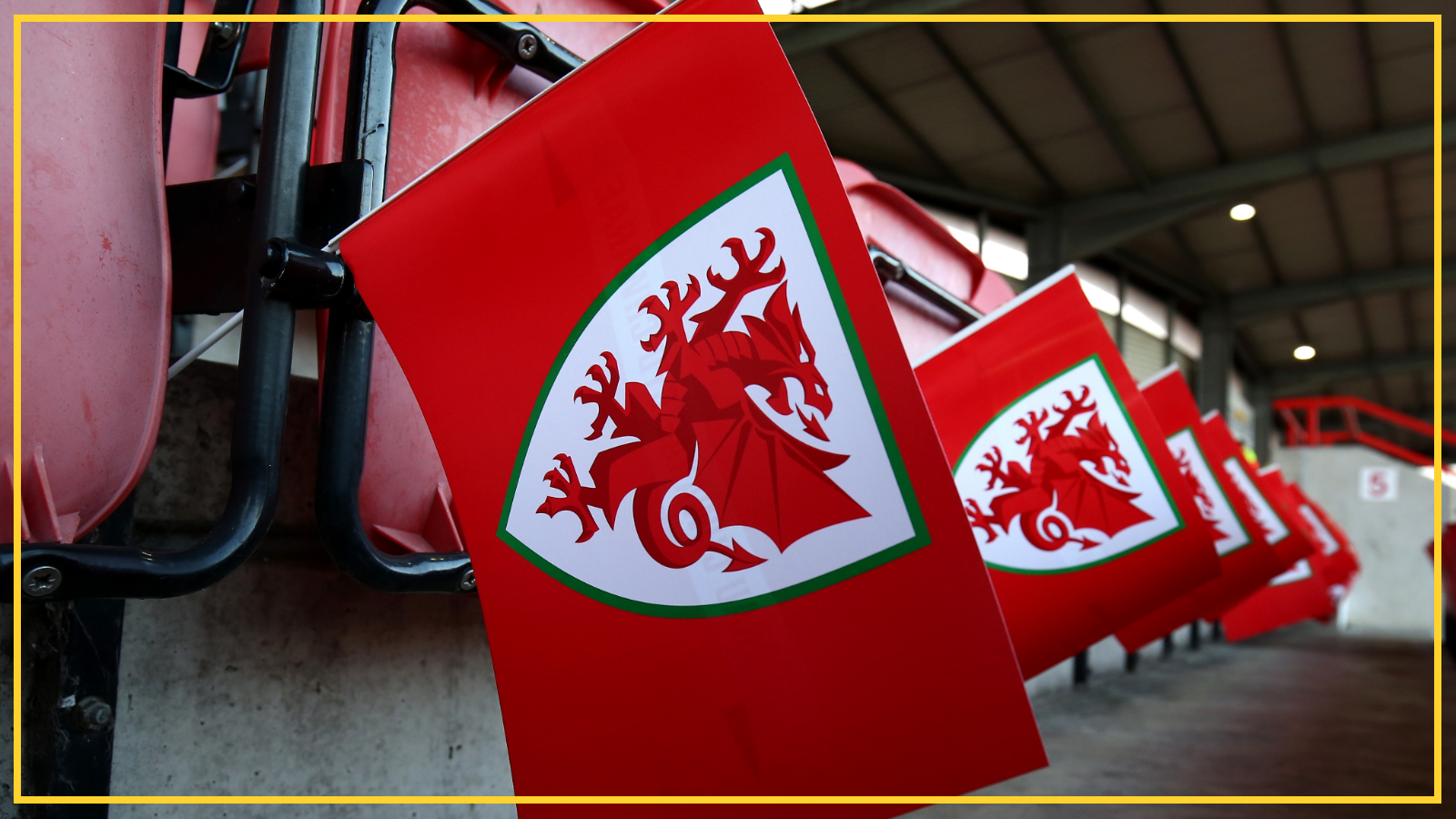Covid: Redundancy warning in lockdown appeal to Treasury
- Published
- comments
What do businesses think of the lockdown in Wales?
Employees could face redundancy if the Treasury does not change its support for workers during Wales' firebreak lockdown, Wales' first minister has said.
Furlough ends on 31 October, and a new scheme starts on 1 November, a week after the start of the firebreak.
Mark Drakeford said he was concerned many laid off staff would not be eligible for what remains of furlough.
The Treasury said the UK government had provided billions in support to Wales.
Welsh Secretary Simon Hart had earlier accused the first minister of taking a decision that would mean people would lose jobs.
On Monday, Mr Hart said the Welsh Government knew "full well" it was not possible for the Treasury to bring forward the Job Support Scheme before announcing the firebreak lockdown in Wales.
He said the lockdown announcement in Wales was "very, very unfair" on people "caught by the time gap" before the Treasury scheme begins on 1 November.
Under the firebreak non-essential shops, pubs and restaurants will be forced to close from 18:00 BST on Friday to 9 November.
On Monday Chancellor Rishi Sunak declined a request for the new Job Support Scheme (JSS) - which will cover 67% of wages - to be brought forward a month.
The Welsh Government said it had offered to pay the cost for the difference between furlough and the JSS, which a minister estimated was £11m.
The Federation of Small Businesses (FSB) expressed concerns about the impact on companies caused by the gap between the start of JSS, and the start of lockdown.
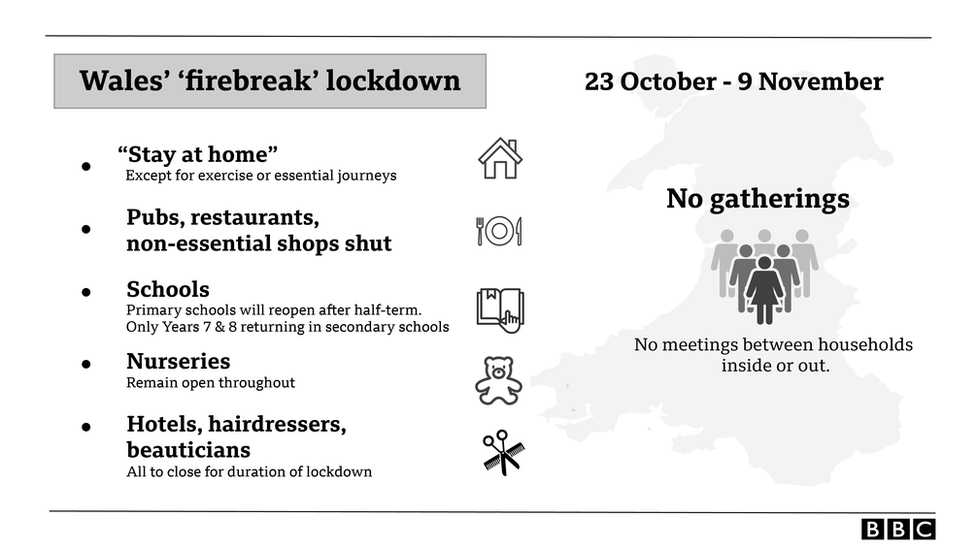
The Welsh Government says the lockdown was necessary to avoid overwhelming the NHS.
In a new letter to the Chancellor, Mr Drakeford said he was "very concerned... that in the worst-affected sectors, leisure and hospitality, it is likely that many staff who will be laid off as a result of the necessary decision to close down all non-essential businesses from 23 October will not fulfil the eligibility criteria to be enrolled on the Job Retention Scheme (JRS) for its last week of operation.
"Employers with no income will be faced with the difficult decision of paying all of the wage costs of these employees or making them redundant."
The first minister has called for a relaxation in the old furlough scheme, which ends on 31 October, so it can cover all those paying tax through PAYE registered on or before 23 September.
Currently only employees who were furloughed for three consecutive weeks can get help from the Treasury for the first week of the firebreak.
What is the Job Support Scheme?
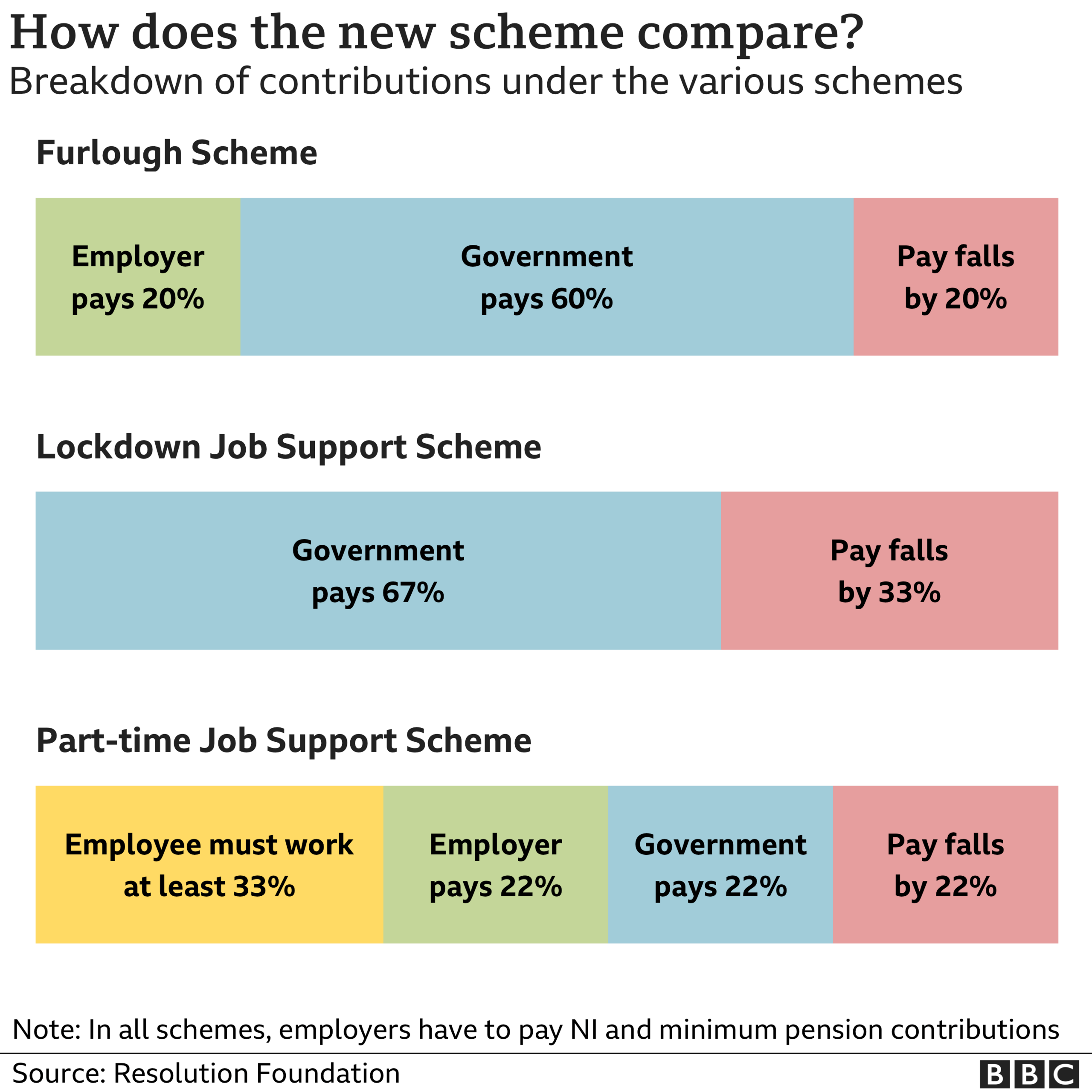
The JSS plans to cover 67% of workers' wages in businesses that have been forced to close.
It pays up to a maximum of £2,100 a month and staff must be off for seven days to be eligible. Payments are due to begin in December.
It replaces furlough, which ends on 31 October and covered 80% of pay, with government paying 60% and employers 20%.
Some employees who are entitled to help through JSS may not be able to get help from furlough for the first week of lockdown - but it is not clear how many.
Neither the Welsh Government or the HMRC were able to provide figures for how many people would be impacted.
'We've been pigeon-holed into one category'
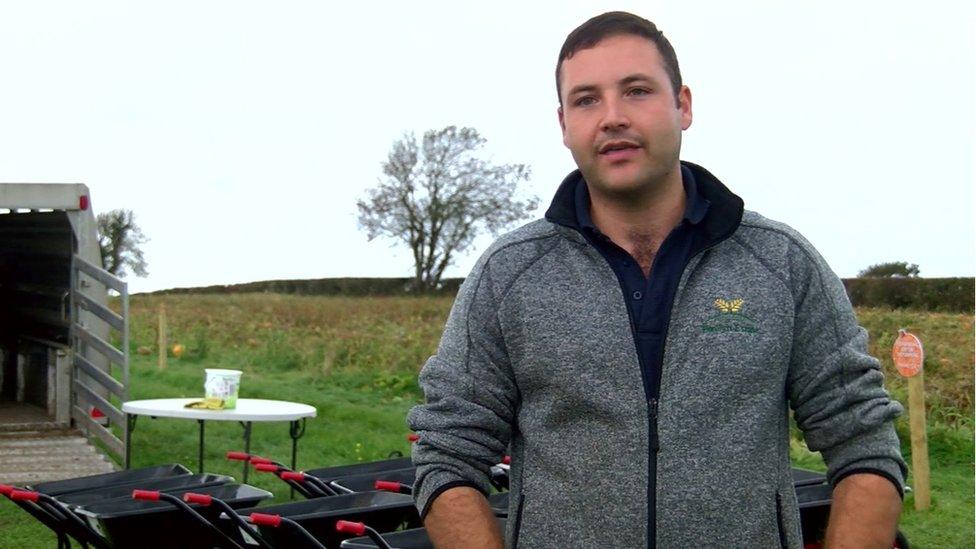
This lockdown means 20,000 pumpkin stock could be lost, says farm manager Damien Burnell
The firebreak rules could mean losing 20,000 pumpkins - which is £80,000 revenue - for farm manager Damien Burnell at Penllyn Estate Farm in Cowbridge.
"We have got over 80,000 square metres of open space here and we can do this safely," he said.
"It is really going to impact our business quite hard."
Meanwhile the owner of Seven Clothing in Roath, Cardiff, Jaymin Patel, said he believed they too could operate safely.
"We have just all been pigeon-holed into one category and all just told to close," he said.
Mr Patel added it is "really difficult" finding out about eligible support whilst running his business.
'It's an absolute dog's dinner'
Back in June there were fears for the future of the pub industry which were closed for months
Pubs, bars, restaurants and cafes have only been allowed to serve customers indoors since restrictions were lifted on 3 August.
Alistair Darby, CEO of brewery and pub chain Brains, which employs 1,400 people in Wales, said the pumps were being switched off again.
Mr Darby told BBC Radio Wales more clarity was needed from the Welsh Government to stop businesses from trying to plug a wage gap, at a time no money was coming in.
"We have got to work out how to communicate to our staff what's going to happen to them, and what support they are going to get in three days," he said.
"It's an absolute dog's dinner.
"We've done everything that was asked of us to support the government in the fight of coronavirus... if they are going to shut us down again they need to do their bit and fast."
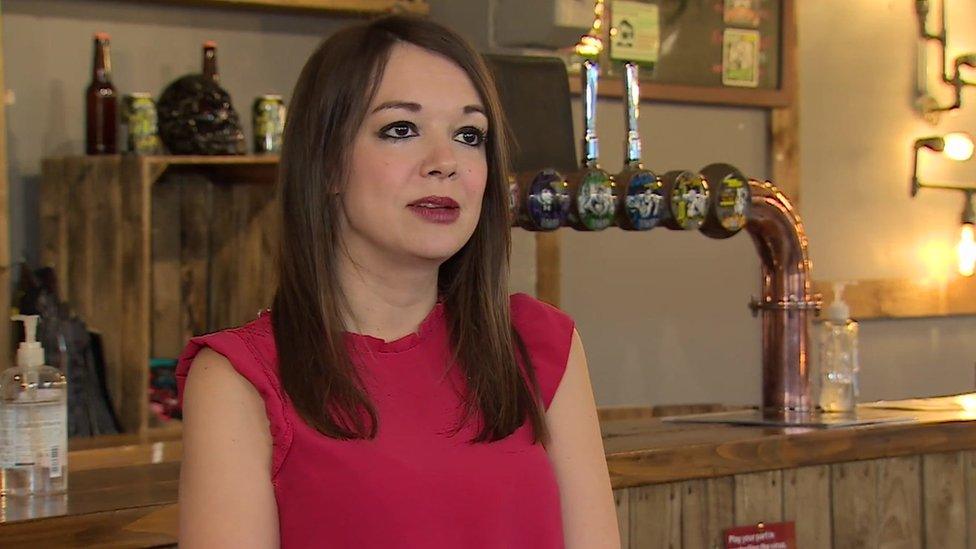
Boss Brewing owner Sarah John is worried there will be more firebreak lockdowns to come
Sarah John, who owns of Boss Brewing in Swansea, said the firebreak would have an impact on their supply to pubs across Wales.
But her worry was that the firebreak duration, ending on 9 November, would not be enough.
"My concern is what then? What if it doesn't have the desired affect? How many times can we continue to go back into lockdown?" she said.
'We've only been open weeks'
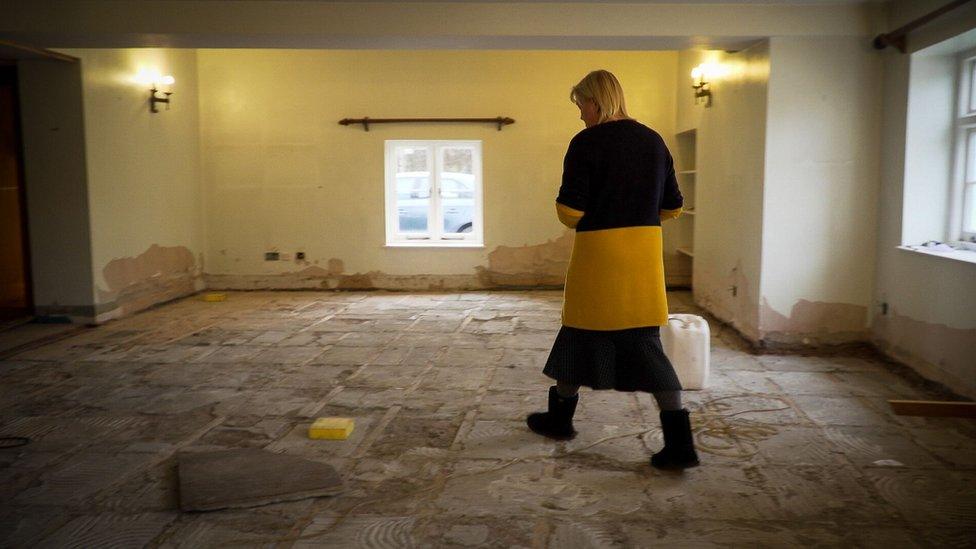
Landlady Sarah Hudson says she feels "alone" after having to shut again weeks after reopening following flood damage
The Bell at Skenfrith, Monmouthshire, was badly damaged after being flooded twice during storms in October and February.
After being unable to get builders on site during the pandemic, the hotel only reopened on 4 September, and is now having to close again.
Landlady Sarah Hudson said: "We've only been open weeks, it's devastating.
"We were fully booked, we've had to cancel guests again... it's really upsetting, it really doesn't do much for our reputation as either flooded or shut down."
Ms Hudson said she was determined for the business to survive, but did not want to have to take out any more loans: "I feel very much on my own."
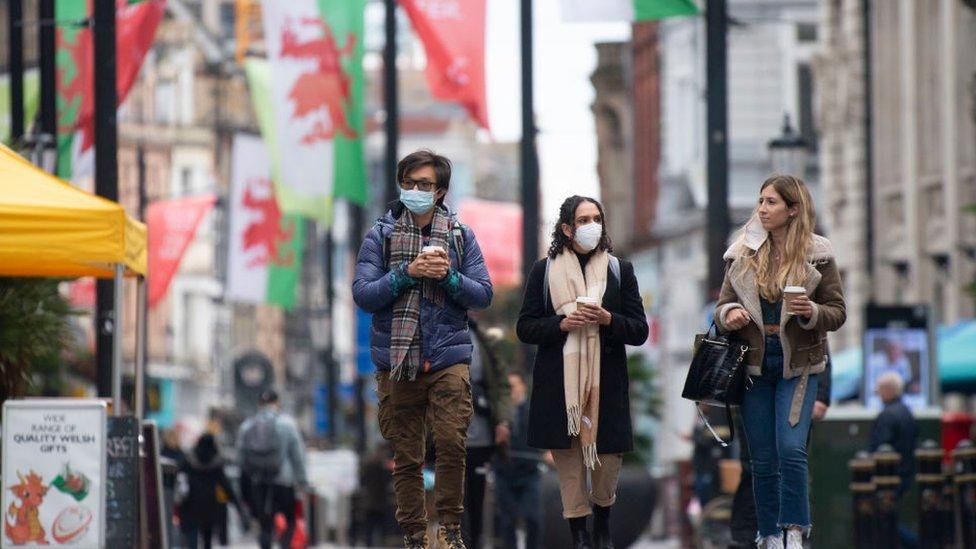
Non-essential shops will have to close, as well as venues, gyms and beauty salons
Ben Cottam of FSB Wales said issues with the Job Support Scheme was just one of the ways "the firebreak lockdown will be causing serious disruption to businesses".
He said businesses that had not previously furloughed staff could not take advantage of wage support until 1 November, and there was an administrative issue in accessing two different schemes.
"We need UK government to take steps to make this process as straightforward as it possibly can be," he said.
"Thirdly, the amount of confusion surrounding this issue illustrates just how complex the situation looks to a small employer. There is no hard and fast word from UK and Welsh governments combined on this, and if you're a small employer trying to understand this situation, this will only cause more misunderstanding."
He said firms still needed clear guidance on who is required to close, and what is required of those firms that are still allowed to trade in some capacity.
CBI Wales director Ian Price said: "It appears that some people may unfortunately being falling through the cracks of the JRS and JSS.
"It's imperative for business, government and employees that we make this work."

Gyms will have to close again, only months after they reopened for members
What has the Treasury said so far?
The Treasury has denied there is a gap between the two schemes.
A spokesman said: "We've given the Welsh Government an additional £4.4bn to cope with the pressures of the pandemic and we have protected more than half a million jobs in Wales through our income support schemes.
"Our support will continue over the winter months, with employers able to use the furlough scheme until the end of October and the Job Support Scheme from November 1."
Economy Minister Ken Skates told a press conference that while there may be no time gap between JRS and JSS, he claimed "in terms of the generosity of his two schemes there is most certainly a gap".
He added that the Welsh Government was unable to make direct payments to workers itself to make up the gap, because it did not have access to people's tax records.
Plaid Cymru said it was a "question of fairness".
Liz Saville Roberts, Plaid MP for Dwyfor Meirionnydd, said: "A firebreak gives us the opportunity to buy more time to build up a resilient test, trace and isolate system.
"But for that to work, the UK government must also do its part by giving appropriate financial support."
A UK government source said the chancellor called all finance ministers before the announcement of the expansion of the scheme to explain how it would work, when it would come into effect and that it would be UK-wide.
He asked finance ministers to keep restrictions as consistent as possible across the devolved nations, the source said.
What other support is available?
The Welsh Government said an extra £150m was being added to the £140m Economic Resilience Fund to support firms through the firebreak.
It will include:
Payments of £1,000 for businesses that are eligible for Small Business Rates relief and occupy a property with a rateable value of £12,000 or less
Payments of up to £5,000 for retail, hospitality and leisure businesses that are required to close and which occupy a property with a rateable value of between £12,001 and £50,000
A £2,000 "top-up grant" for businesses closed or materially affected by lockdown
A £1,000 grant for businesses that were materially affected by local lockdown measures for 21 days or more prior to the start of the firebreak
- Published23 October 2020
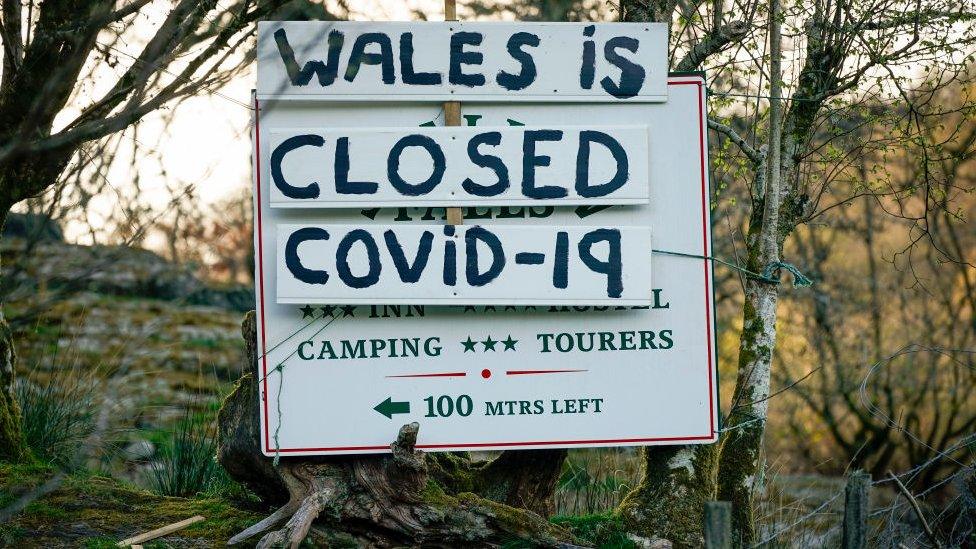
- Published19 October 2020
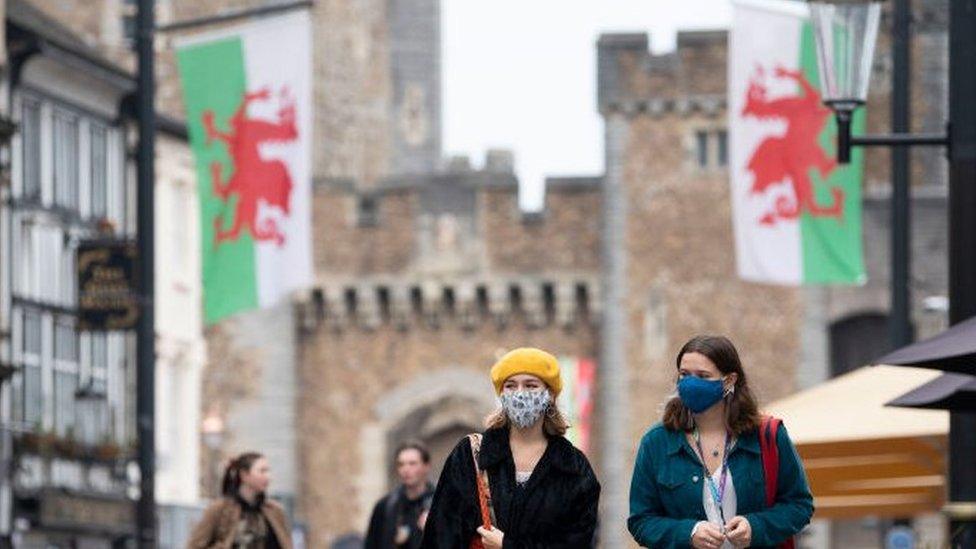
- Published20 November 2020
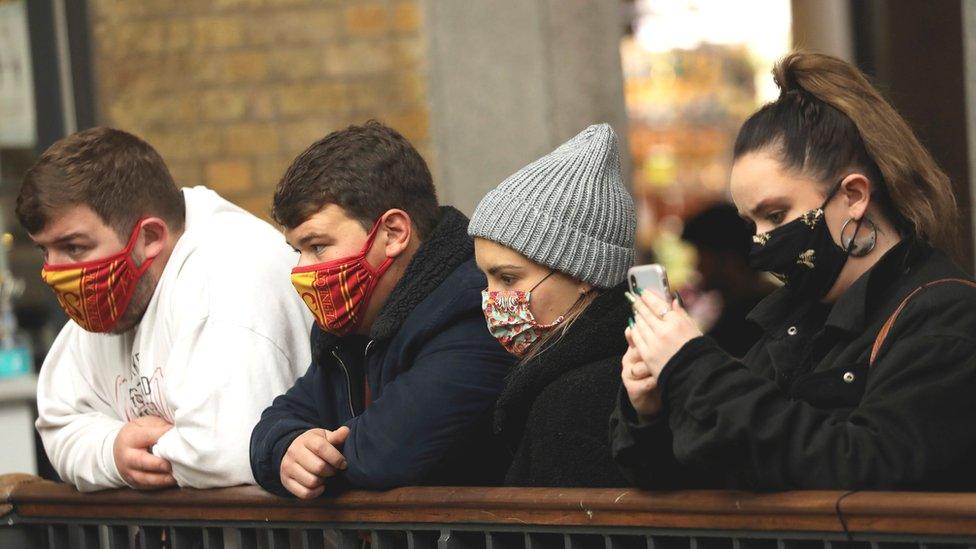
- Attribution
- Published21 October 2020
